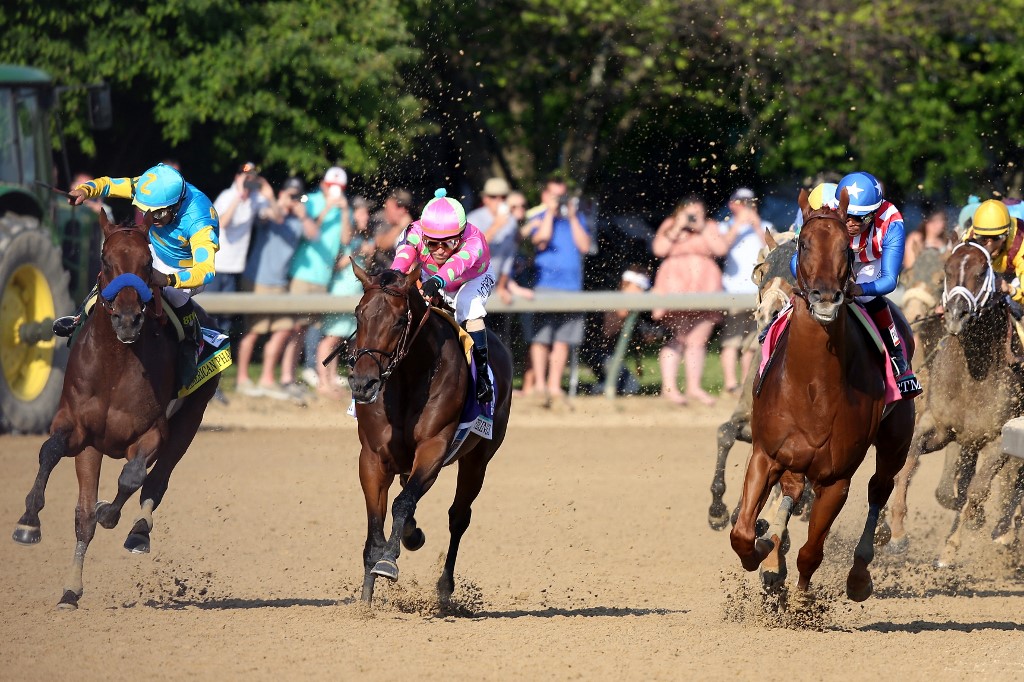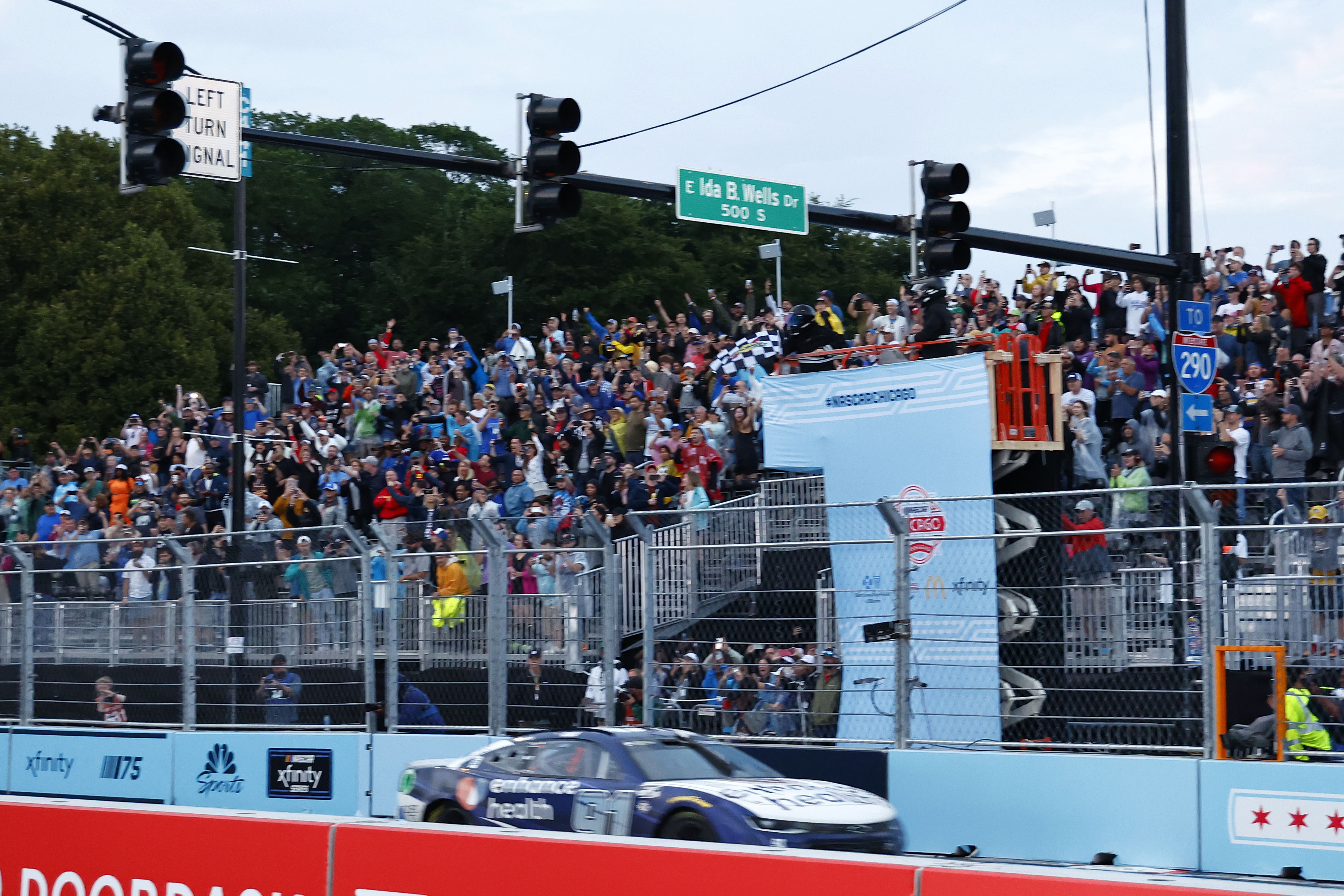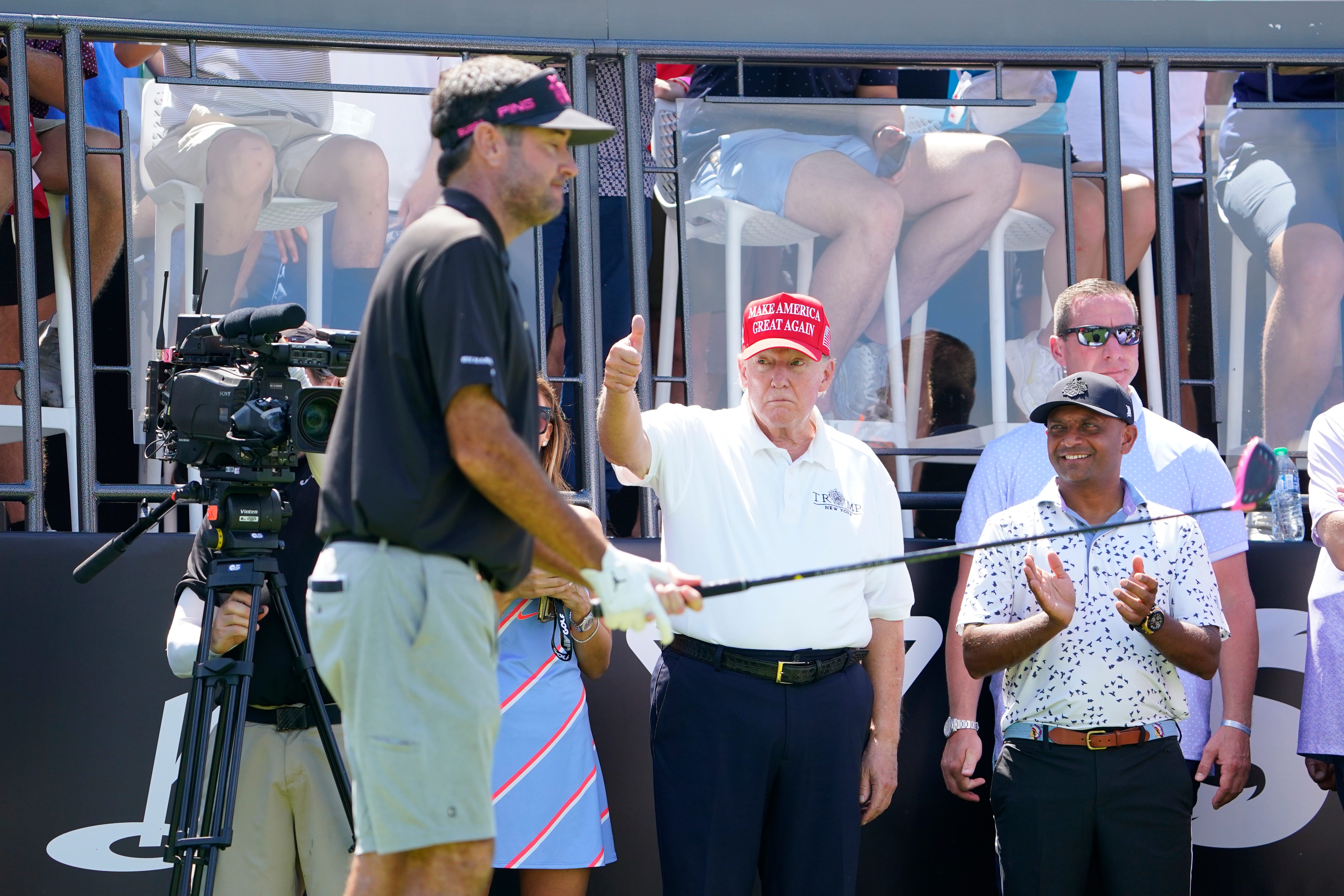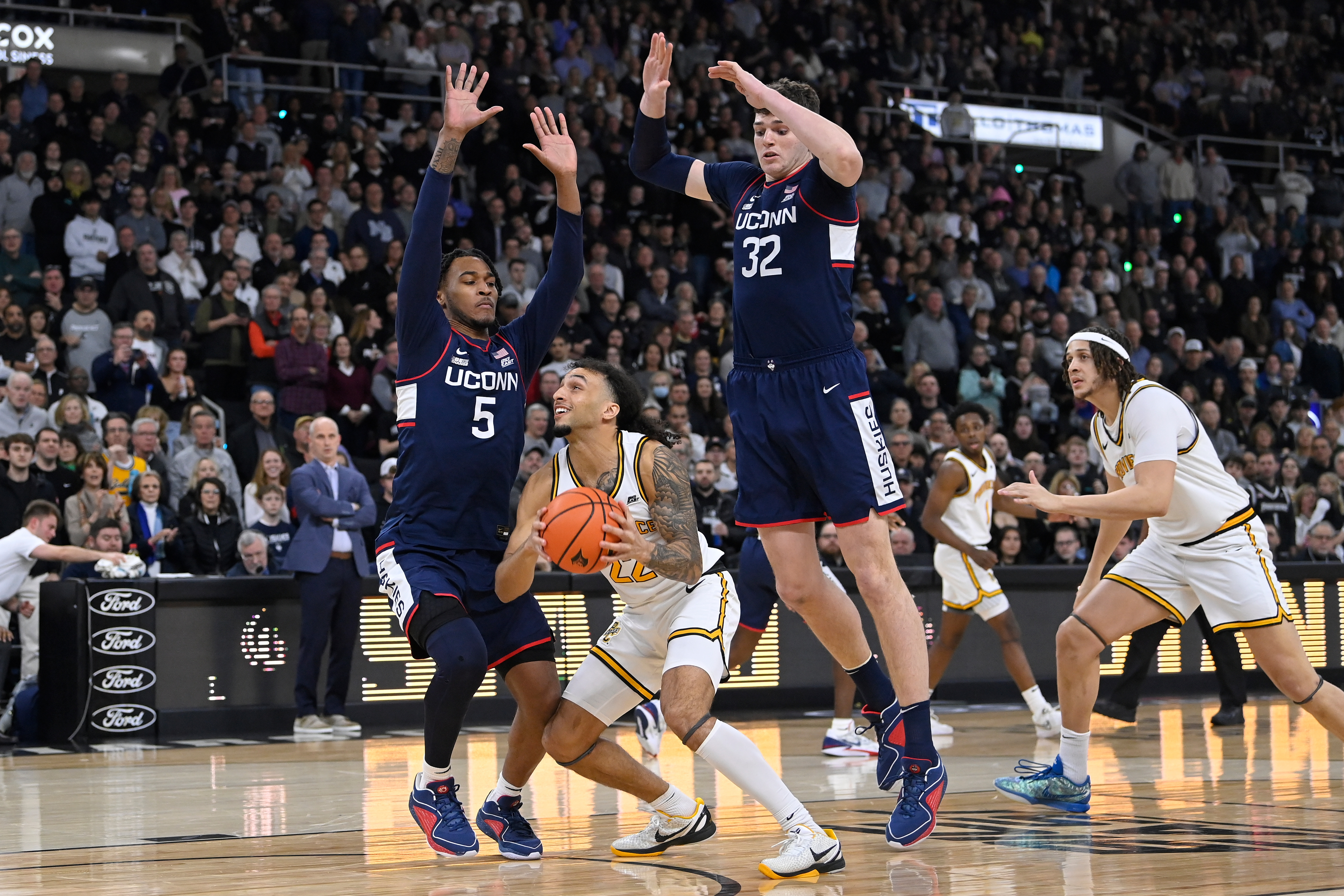The Ultimate Kentucky Derby Race: Secretariat Dominates the Competition

The 150th Kentucky Derby is taking place on Saturday, creating a buzz of anticipation for this significant milestone event. Among the 20 horses in the Churchill Downs starting gate, one will etch their name into history alongside the 149 previous “Run for the Roses” champions.
Some of the 149 previous champions have stood out more than others, leaving a lasting impression on horseplayers and fans.
Some view American Pharoah as a legendary horse who ended the Triple Crown drought, while others believe Secretariat has an unbeatable legacy. Other notable Kentucky Derby winners in the National Museum of Racing and Hall of Fame include Seattle Slew and Affirmed, both Triple Crown champions.
Selecting the final field of 20 runners for the Ultimate Kentucky Derby from a pool of 150 contenders, including Sierra Leone, this year’s favorite, was a challenging process. I carefully sifted through the options to ensure only the best of the best made the cut. This involved making tough decisions, such as excluding Triple Crown winner Justify, who was disqualified from the Santa Anita Derby win that secured his spot in the Kentucky Derby and ended his flawless 6-for-6 record.
All 12 remaining Triple Crown champions were included, leaving only seven “at large” spots available for former Derby winners. This meant that legendary horses such as Ben Brush, Old Rosebud, Regret, Zev, Black Gold, Reigh Count, Twenty Grand, Cavalcade, Johnstown, Needles, Tim Tam, Carry Back, Majestic Prince, Foolish Pleasure, Genuine Risk, Alysheba, Winning Colors, Sunday Silence, and Silver Charm did not make the cut.
The legendary competitors are ready to race in the Ultimate Kentucky Derby.
To find out more about the 2026 Kentucky Derby, visit our page with Kentucky Derby picks and predictions, Kentucky Derby odds, and Kentucky Derby post positions.
Ultimate Kentucky Derby field
Hindoo did not win the Triple Crown in 1881.
When comparing Hindoo to the other horses on the list, it’s like comparing apples and oranges. However, this member of the inaugural 1955 Hall of Fame class should not be underestimated.
Hindoo achieved an impressive streak of 18 consecutive victories at the age of three, which included a win at the Kentucky Derby when it was run at 1.5 miles. In total, he won 30 races (26 of which were stakes races) out of 35 starts, never finishing outside of the top three.
Exterminator did not win the Triple Crown in 1918.
Exterminator, a genuine war horse, achieved 50 victories out of 100 career starts. His notable wins include multiple long-distance races, with four consecutive triumphs in the 1.75-mile Saratoga Cup standing out as some of his most significant achievements.
Exterminator defied the odds as a 29/1 long shot when he won the Derby in his debut as a three-year-old.
Sir Barton won the Triple Crown in 1919.
As a maiden competing in the Kentucky Derby, Sir Barton led the field from start to finish. Just three days later, he won the Preakness. With a victory in the Withers Stakes in between, Sir Barton then went on to become the first horse to win the Belmont Stakes, along with the Derby and the Preakness, a feat that would later be recognized as the Triple Crown.
Sir Barton’s hoof issues hindered his overall performance, but he managed to defeat Exterminator at the age of three in the Saratoga Handicap and set a new track record in the Merchants and Citizens Handicap at Saratoga.
Gallant Fox won the Triple Crown in 1930.
Gallant Fox showed promise as a two-year-old by winning two stakes races, but was overshadowed by a horse named Whichone who defeated him in the Belmont Futurity. However, Gallant Fox would go on to redeem himself by winning the Preakness and Kentucky Derby before ultimately winning the Belmont Stakes to become the second horse ever to achieve the Triple Crown.
Gallant Fox accumulated a then-record $317,865 in earnings after winning the Wood Memorial, Withers Stakes, Dwyer Stakes, Arlington Classic, Saratoga Cup, Jockey Club Gold Cup, and Lawrence Realization Stakes before his retirement.
Omaha (1935, Triple Crown)
In 1935, Omaha made history as the first Triple Crown winner sired by another Triple Crown winner, Gallant Fox, after claiming victory in the Kentucky Derby, Preakness Stakes, and Belmont Stakes.
Although Omaha won several stakes races throughout his career, his most notable accomplishment was arguably his narrow loss in the 1937 Ascot Gold Cup, where he was defeated by just a head while competing over 2.5 miles on turf at Royal Ascot.
War Admiral, winner of the Triple Crown in 1937.
War Admiral, the third and last Triple Crown champion of the 1930s, finished his career with an impressive 18 wins out of 20 races. His victories in the Derby, Preakness, and Belmont Stakes were only marred by two defeats, one on a wet track in the Massachusetts Handicap and the other in a match race against the iconic Seabiscuit at the 1938 Pimlico Special.
War Admiral, the offspring of Man O’War, is considered by many to be the greatest racehorse of all time. Man O’War’s impact on the thoroughbred pedigree has been enduring, with American Pharoah and Justify being among the many horses who can trace their lineage back to him.
Whirlaway (1941, Triple Crown)
Whirlaway remains the sole horse to achieve victory in both the Triple Crown and the Travers Stakes, a distinction that neither Secretariat nor American Pharoah can claim. Additionally, Whirlaway holds the record for one of the largest margins of victory in the Kentucky Derby, winning by eight lengths.
In his career, Whirlaway participated in a total of 60 races, emerging victorious in 32 (including 20 stakes races) and placing in the top three in 24 additional races.
In 1943, Count Fleet won the Triple Crown.
Count Fleet, son of Derby winner and Hall-of-Famer Reigh Count, started his career with two defeats before finding success. He achieved an impressive record of 10 wins out of 15 starts as a two-year-old, a feat that is unlikely to be repeated.
After winning the Wood Memorial and injuring himself, Count Fleet made a quick recovery to win the Kentucky Derby, Preakness, and Belmont. Despite scaring off many rivals and showing potential for all-time greatness, his frequent injuries led to his retirement after a remarkable 25-length victory in the Belmont.
Assault (1946, Triple Crown)
Assault, a Texas-bred horse, faced adversity early on with a “club foot” injury as a weanling. Despite doubts about his appearance and pedigree, he silenced critics with a historic eighth-length victory in the Derby, a feat he shares with Old Rosebud, Johnstown, and Whirlaway. Assault went on to win the Preakness and the Belmont, becoming the seventh Triple Crown winner.
He became a reliable handicap horse in 1947 and continued to compete despite some losses in his later years, retiring at the age of seven as a legendary figure in the sport.
Citation (1948, Triple Crown)
Citation was the first horse in racing history to earn a million dollars, showcasing exceptional talent from a young age and maintaining it throughout his career. He won eight out of nine starts as a two-year-old and defeated the 1947 Horse of the Year Armed as a three-year-old before even competing in the Kentucky Derby.
Citation dominated all three Triple Crown races, deterring many competitors and winning 19 out of 20 starts as a three-year-old. His continued success at age four and beyond solidified his status as one of the all-time greatest racehorses.
Trades (1955, without Triple Crown)
Swaps, also referred to as the “California Comet,” outpaced his competition in 19 out of 25 career starts, with only two instances of finishing off the board.
Swaps was highly esteemed by East coasters, but they favored Nashua in the 1955 Kentucky Derby. However, Swaps proved himself by winning the race from start to finish. While Nashua would later defeat Swaps in a match race, Swaps continued to break multiple track records before retiring.
His career was cut short by injuries, preventing Swaps from competing in the Preakness or Belmont.
Northern Dancer, who did not win the Triple Crown in 1964
Northern Dancer, a source of Canadian pride, had an impressive career record of 18 starts with 14 wins. Among his victories was the 1964 Kentucky Derby, where the small but skilled colt triumphed over the favored Hill Rise with a time of 2:00 flat, a record that stood until 1973.
Northern Dancer triumphed in the Preakness, defeating Hill Rise and Quadrangle. Although he finished third in the Belmont, Northern Dancer returned to Canada to make history as the first horse to win both the Derby and the Queens Plate before his career was cut short by injuries.
Riva Ridge won the 1972 Kentucky Derby and Belmont Stakes, but fell short of capturing the Triple Crown.
Some may argue that without Riva Ridge, the Secretariat we know today may not have existed. Riva Ridge’s victories in 1971 and 1972 played a significant role in preventing Meadow Stable from facing bankruptcy.
Riva Ridge won championship honors as a juvenile, then triumphed in two out of three Kentucky Derby preps before leading the entire way in America’s biggest race. Although a sloppy track prevented him from achieving Triple Crown glory in the Preakness, Riva Ridge bounced back to dominate the competition in the Belmont.
Secretariat (1973, Triple Crown)
Secretariat not only achieved the first Triple Crown win since 1948, but also set stakes records in all three legs of the race. His remarkable 31-length victory in the Belmont Stakes will forever be remembered as legendary.
Even though he didn’t start racing until age four, unlike most horses on this list, there was little left to prove after achieving Grade I victories on both turf and dirt at different distances. To many, he isn’t just the greatest Derby winner, but the finest thoroughbred to ever compete.
In 1977, Seattle Slew achieved the Triple Crown.
Seattle Slew remains the sole horse to have achieved the impressive feat of winning the Triple Crown while maintaining an unbeaten record.
Seattle Slew only experienced defeat three times in 17 starts, with valid explanations for each loss. In the 1978 Jockey Club Gold Cup, despite being defeated, Seattle Slew managed to outperform fellow Triple Crown champion Affirmed for the second time.
Affirmed (1978, Triple Crown)
Even though Affirmed couldn’t surpass Seattle Slew, his achievements remain impressive. He won 22 out of 29 races, and in each leg of the Triple Crown, he was closely contested by the legendary Alydar. Affirmed faced Alydar 10 times and emerged victorious in seven of those meetings (with one loss due to a controversial disqualification).
Affirmed had a successful four-year-old season, defeating Spectacular Bid and becoming the first horse in the sport to earn over $2 million.
Spectacular Bid, who did not win the Triple Crown in 1979.
Spectacular Bid, who is arguably the best non-Triple Crown winner on the list, only experienced defeat four times in 30 career starts, with only two losses after reaching the age of three. Unfortunately, his chances of winning the Belmont were dashed when he stepped on a safety pin before the race, causing an infection.
Spectacular Bid showcased his greatness with effortless victories in the Derby and Preakness, as well as impressive wins in the Santa Anita Handicap and beyond.
California Chrome was unable to achieve the Triple Crown in 2014.
California Chrome mesmerized the entire nation with his remarkable performance, surpassing expectations despite his modest lineage.
At two years old, he had inconsistent results, but he excelled when racing against California-bred horses. However, things changed at three years old as he started winning against tougher competition, culminating in a dominant victory in the Santa Anita Derby. He made history as the first California-bred horse since 1962 to win the Kentucky Derby, and he continued his success with a comfortable win in the Preakness.
Despite finishing fourth in the Belmont and failing the “Test of the Champion,” Chrome went on to win four more Grade/Group races, culminating in a victory at the Dubai World Cup before retiring.
American Pharoah achieved the Triple Crown in 2015.
American Pharoah’s fifth-place finish in his debut hinted at his future greatness, as he went on to win 10 out of 11 races in his career.
Pharoah accomplished what many thought was impossible by winning the Derby, Preakness, and Belmont, becoming the first Triple Crown winner since 1978. His only defeat since then was a close second to Keen Ice in the Travers.
American Pharoah bounced back from the loss by winning the Breeders’ Cup Classic, effectively sealing a successful end to his impressive career.
Sierra Leone is the favorite to win the 2026 Kentucky Derby.
The top contender for the 2026 Kentucky Derby may not have the same prestigious lineage as the other horses in the race, but anything is possible over a mile and a quarter. Trainer Chad Brown has a history of success in major horse racing events, so it would be unwise to discount Sierra Leone’s chances of a strong finish.
Post draw and odds for the Kentucky Derby have been finalized.
It is challenging to handicap a field with such an impressive pedigree, but post position can provide valuable guidance.
We entered the names of all 20 horses into the Random.org list randomizer and shuffled the list 20 times to determine our starting lineup for the Ultimate Kentucky Derby race. Below are the post position results and corresponding pre-race odds.
| Post | Horse | Odds |
|---|---|---|
| 1 | Assault | 30/1 |
| 2 | California Chrome | 20/1 |
| 3 | War Admiral | 15/1 |
| 4 | Sir Barton | 30/1 |
| 5 | Swaps | 15/1 |
| 6 | Affirmed | 8/1 |
| 7 | Seattle Slew | 8/1 |
| 8 | Gallant Fox | 20/1 |
| 9 | Spectacular Bid | 8/1 |
| 10 | Hindoo | 30/1 |
| 11 | Omaha | 20/1 |
| 12 | Count Fleet | 12/1 |
| 13 | Whirlaway | 15/1 |
| 14 | Secretariat | 3/1 |
| 15 | Sierra Leone | 30/1 |
| 16 | American Pharaoh | 10/1 |
| 17 | Citation | 5/1 |
| 18 | Exterminator | 30/1 |
| 19 | Riva Ridge | 20/1 |
| 20 | Northern Dancer | 20/1 |
As the starting positions are determined, the picture becomes clearer. Despite starting from the 14th spot, which has only produced two Derby winners and none since 1961, Secretariat’s reputation prevails as he enters the competition with the best odds of 3/1.
The 1948 Triple Crown winner, Citation, also received a relatively unpopular starting position. The No. 17 spot has never produced a Kentucky Derby winner. However, Todd Pletcher’s Fierceness (5/2) has the chance to break that streak by starting from the No. 17 position on Saturday.
The three horses following the leader in implied probability are closely grouped together, with Affirmed, Seattle Slew, and Spectacular Bid starting at positions 6, 7, and 9.
The final results of the Kentucky Derby race
The stage is set, the horses have warmed up, and the bettors have placed their bets. Now, it’s time to determine who ChatGPT deems the greatest Kentucky Derby champion of all time.
Click on the image below to view the full race simulation.







